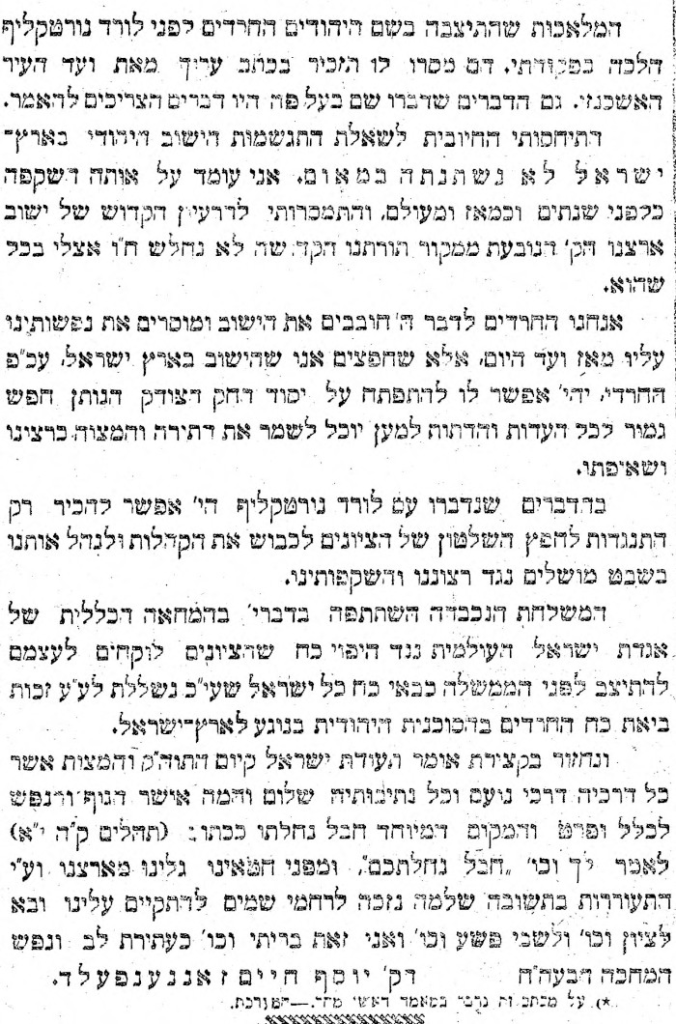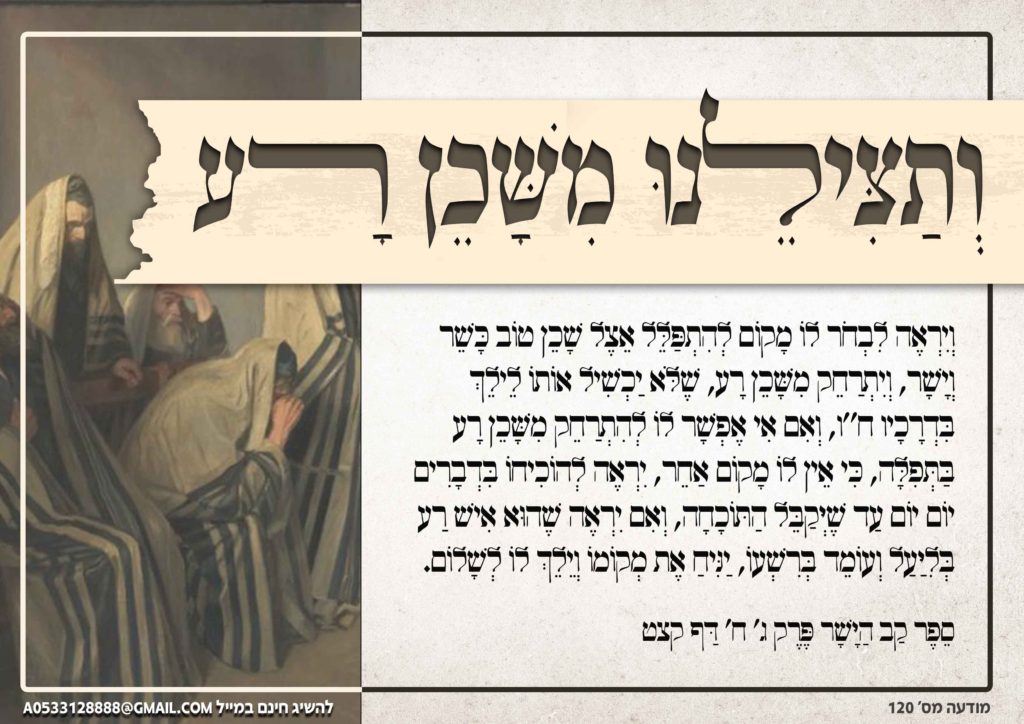אמר הקב”ה לישראל: בני, כך חשבתי שתהיו חורין מן המלכות… אבל אתם לא בקשתם כן
כי תבא אל הארץ וגו’ – הלכה: מלך ישראל שהיה לו עסק, מהו שיהא מותר לו לדון לפני ב”ד? כך שנו חכמים: מלך לא דן ולא דנין אותו לא מעיד ולא מעידין אותו. לימדונו רבותינו: למה אין דנין אותו? אמר רבי ירמיה: שכתוב בדוד המלך (תהלים יז): מלפניך משפטי יצא. הוי אין בריה דן את המלך, אלא הקב”ה. רבנן אמרי: אמר הקב”ה לישראל: בני! כך חשבתי שתהיו חורין מן המלכות. מנין? שנאמר (ירמיה ב): פרא למוד מדבר, כשם שהפרא גדל במדבר ואין אימת אדם עליו, כך חשבתי שלא תהא אימת מלכות עליכם, אבל אתם לא בקשתם כן, אלא (שם) באות נפשה שאפה רוח, ואין רוח אלא מלכויות. מנין? שנא’ (דניאל ז) וארו ארבע רוחי שמיא מגיחין לימא רבא. אמר הקב”ה: ואם תאמרו שאיני יודע שסופכם לעזבני, כבר הזהרתי ע”י משה ואמרתי לו: הואיל וסופן לבקש להן מלך בשר ודם, מהן ימליכו עליהן, לא מלך נכרי. מנין? ממה שקרינו בעניין: ואמרת אשימה עלי מלך.
זה שאמר הכתוב (איוב לד): ממלוך אדם חנף ממוקשי עם. רבי יוחנן וריש לקיש, רבי יוחנן אמר: אם ראית חנף ורשע מנהיג את הדור, נוח לו לדור לפרוח באוויר ולא להשתמש בו, ואין הלשון הזה ממוקשי עם אלא לפרוח, כעניין שנאמר (עמוס ג): התפול צפור על פח הארץ ומוקש אין לה?! ממלוך אדם חנף וגו’. רבנין אמרי: כיון שעמדו מלכים על ישראל והתחילו משעבדין בהן, אמר הקב”ה: לא אתם עזבתם אותי ובקשתם לכם מלכים?! הוי, אשימה עלי מלך. זה שאמר הכתוב (תהלים קמו): אל תבטחו בנדיבים וגו’. אמר רבי סימון, בשם רבי יהושע בן לוי: כל מי שבוטח בהקב”ה זוכה להיות כיוצא בו. מנין? שנא’ (ירמיה יז): ברוך הגבר אשר יבטח בה’ והיה ה’ מבטחו. אבל כל מי שיבטח בעבודת כוכבים, נתחייב להיות כיוצא בה. מנין? שנאמר (תהלים קטו): כמוהם יהיו עושיהם. רבנן אמרי: כל מי שנשען בבשר ודם עובר אף פרוסטיא שלו עוברת, שנאמר (שם קמו): בבן אדם שאין לו תשועה. מה כתיב אחריו? תצא רוחו ישוב לאדמתו. אמר הקב”ה: ויודעין שאין בשר ודם כלום ומניחין כבודי ואומרין: שימה לנו מלך?! מה אתם מבקשין מלך? חייכם! שסופכם להרגיש מה עתיד להגיע לכם מתחת מלככם. מנין? שנאמר (הושע ז) כל מלכיהם נפלו אין קורא בהם אלי.
דבר אחר: אשימה עלי מלך רבנן אמרי: אמר הקב”ה: בעוה”ז בקשתם מלכים ועמדו המלכים מישראל והפילו אתכם בחרב. שאול הפילם בהר הגלבוע. מנין? (ש”א ד) נס ישראל מפני פלשתים וגו’. דוד, נתן מגפה, שנא’ (ש”ב כד): ויתן ה’ דבר בישראל. אחאב, עצר עליהן את הגשמים, שנא’ (מלכים א יז): אם יהיה השנים האלה טל ומטר וגו’. צדקיהו, החריב את בהמ”ק, כיון שראו ישראל מה הגיע מתחת ידי מלכיהם התחילו צווחין הכל: אין אנו מבקשין מלך ישראל, למלכנו הראשון אנו מבקשין (ישעיה לג): כי ה’ שופטנו ה’ מחוקקנו ה’ מלכנו הוא יושיענו. אמר להם הקב”ה: חייכם! כך אני עושה. מנין? שנאמר (זכריה יד): והיה ה’ למלך על כל הארץ וגו’.


